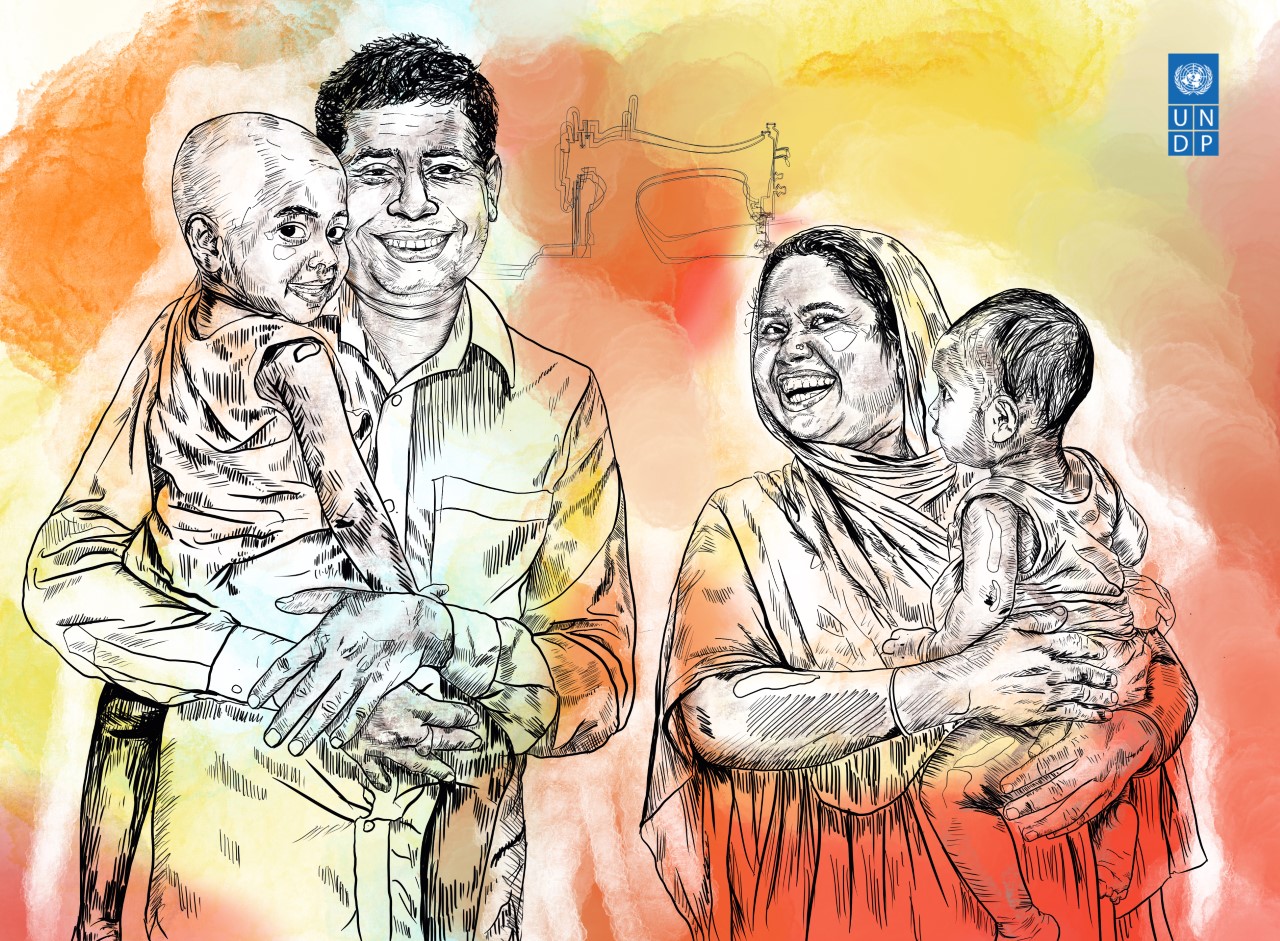Changing lives of urban poor
September 14, 2022

Ismat continued to recount the early days of hardship as they worked to build their business from scratch with UNDP’s support.
Ismat Ara, a simple girl from the rural areas of Netrokona, started her life very young with her husband Azizul.
“We had a rough start to our lives together,” she said. “Yes, this is not unusual where people like me come from, but mine eventually became a story of rewriting the direction poverty was taking us.”
She pointed to a white card with a UNDP logo that indicated being part of their LIUPCP project, “thanks to this special card.”
When she first moved to Dhaka, the capital city, in 2017, they were barely making ends meet living in the slums. That’s when a new hope suddenly emerged in the form of the white card.
“I wasn't even sure whether I would get to be a part of the program,” Ismat recalled, “I heard that the selection process for the project was very careful and stringent to ensure that only the rightful recipients got the financial and training support. I was not sure I would make the cut among the competition.”
Ismat got selected and received basic training on business management, accounting and comprehensive business planning that would help them plan for the long-run and scale up.
Ismat continued to recount the early days of hardship as they worked to build their business from scratch with UNDP’s support.
“During the early days, we had to work really hard to support ourselves and also save up for expansion of our business. My husband and I really stuck together and we would alternate family and business duties as well as support each other through the very stressful time, far from home.”
“We were setting aside earnings from the tea stall to buy sewing machines” Azizul had some skills he picked up in his early days and I could also get by.
Soon they bought two machines and were able to serve 3-4 customers daily earning from Tk 3,000-4,000 every week. Life was starting to turn around.
However, it wasn’t a straight-forward upwards tale. “The reality around us was also becoming harsher with rising prices and uncertain economic climate,” Azizul explained.
“Now that we have more children than when we started off, the cost of raising the family was also increasing,” he pointed out.
Ismat added, “Yet, we both agree to the innumerable ways in which the program has changed our lives. Not only had the monetary support come at a time of desperate need and helped us achieve social mobility from catastrophic circumstances, I have also enjoyed the social aspect of the program immensely.”
Since the start of the program, Ismat Ara has conceived twice more, and each time a social worker was assigned to them through the program who provided nutritional consultancy, maternal training and most importantly, unwavering mental support throughout the pregnancies.
“While we, their parents, had come to Dhaka empty-handed, thanks to this LIUPC program, our children can go to school regularly and come home to the loving embrace of a happy, healthy family.
The Livelihood Improvements of Urban Poor Communities Project (LIUPCP) by UNDP is supported by Foreign, Commonwealth and Development Offices– UK (FCDO-UK).
It aims to contribute to balanced, sustainable growth by reducing urban poverty in Bangladesh and contribute to the achievement of the Sustainable Development Goals by 2030 that call for ‘leaving no one behind’.
LIUPCP seeks to address urban poverty issues not through the direct implementation of infrastructure improvements, or charitable giving to selected urban poor beneficiaries; rather to influence the environment in which poverty reduction policies and thinking take place, and thereby having a potentially much more widespread and lasting effect by inclusion of poor in decision making processes.

 Locations
Locations



